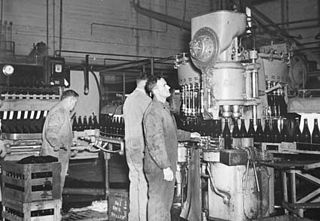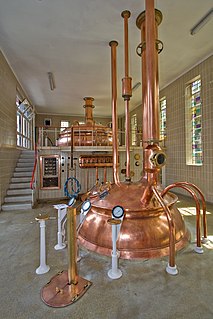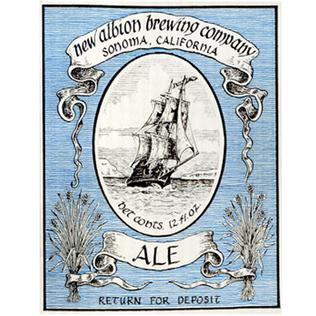This is a list of articles and categories dealing with beer and breweries by region: the breweries and beers in various regions. Beer is the world's most widely consumed alcoholic drink, and is the third-most popular drink overall, after water and tea. It is thought by some to be the oldest fermented drink. A brewery is a dedicated building for the making of beer, though beer can be made at home, and has been for much of beer's history. A company that makes beer is called either a brewery or a brewing company. The diversity of size in breweries is matched by the diversity of processes, degrees of automation, and kinds of beer produced in breweries. A brewery is typically divided into distinct sections, with each section reserved for one part of the brewing process.

A craft brewery or microbrewery is a brewery that produces small amounts of beer, typically less than large breweries, and is often independently owned. Such breweries are generally perceived and marketed as having an emphasis on enthusiasm, new flavours, and varied brewing techniques.

Beer has been brewed in England for hundreds of years. As a beer brewing country, it is known for top fermented cask beer which finishes maturing in the cellar of the pub rather than at the brewery and is served with only natural carbonation.

Beer arrived in Australia at the beginning of British colonisation. In 2004 Australia was ranked fourth internationally in per capita beer consumption, at around 110 litres per year; although, the nation ranked considerably lower in a World Health Organization report of alcohol consumption per capita of 12.2 litres. Lager is by far the most popular type of beer consumed in Australia.

Beer in South Africa has a long history, with a corporate history dating back to the early 20th century.

Beer in Japan comes mostly from the country's four major beer producers: Asahi, Kirin, Sapporo, and Suntory, producing mainly pale-colored light lagers with an alcohol strength of around 5.0% ABV. The drink is immensely popular, with beer far ahead of sake consumption.

The beer market in Denmark is dominated by the brands Carlsberg and Tuborg. Since Tuborg was acquired by Carlsberg in 1970, Carlsberg has held a near-monopoly. A number of regional breweries, however, managed to survive, and most of them merged into Royal Unibrew in 2005. As of 2020, Ratebeer lists over 300 active breweries in Denmark, most of which are microbreweries.
Quebec beer is the beer brewed in Quebec, Canada, often with ingredients from Quebec itself and generally following the recipes of the French, Belgian and British brewing traditions. Generally, the beers brewed in Quebec differ from those in the rest of North America because of the relative importance of the French and Belgian traditions alongside that of Great Britain. German-type beers are also produced by some breweries.

A brewery or brewing company is a business that makes and sells beer. The place at which beer is commercially made is either called a brewery or a beerhouse, where distinct sets of brewing equipment are called plant. The commercial brewing of beer has taken place since at least 2500 BC; in ancient Mesopotamia, brewers derived social sanction and divine protection from the goddess Ninkasi. Brewing was initially a cottage industry, with production taking place at home; by the ninth century monasteries and farms would produce beer on a larger scale, selling the excess; and by the eleventh and twelfth centuries larger, dedicated breweries with eight to ten workers were being built.

Breweries in New Hampshire produce a wide range of beers in different styles that are marketed locally, regionally, and nationally. Brewing companies vary widely in the volume and variety of beer produced, from small nanobreweries and microbreweries to massive multinational conglomerate macrobreweries.
The history of beer in Hong Kong dates back to the mid-19th century. Currently the best selling beer is San Miguel, brewed by San Miguel Brewery Hong Kong. San Miguel had been brewed in Sham Tseng since 1948 and later moved to Yuen Long until 2007. The brewery was reopened in 2009.

Mikkeller is a microbrewery founded in 2006 in Copenhagen, Denmark that was originally based on the so-called "cuckoo", "phantom" or "gypsy" ethos; that is, the company did not operate an official brewery and, instead, collaborated with other brewers to produce their recipes or experimental one-off brews. The company now operates four breweries, Mikkeller Brewing in San Diego, Warpigs, a brewpub in Copenhagen, Mikkeller Brewpub London and Baghaven, a brewery and Blenderia in Copenhagen. Mikkeller was founded by two home brewers: Mikkel Bjergsø, a high school teacher, and journalist Kristian Klarup Keller. Both sought to introduce their home-brewed beer to the public and to "challenge beer friends with intense new tastes", drawing inspiration from the American breweries that "aren't afraid to play and break all the rules".

The New Albion Brewing Company is known as the first American craft beer brewery. Founded in 1976 by Jack McAuliffe, Suzy Stern, and Jane Zimmerman in Sonoma, California, New Albion is acknowledged as the first United States microbrewery of the modern era, as well as a heavy influence on the subsequent microbrewery and craft beer movements of the late 20th century. New Albion was resurrected in 2012 by Boston Beer Company under the supervision of McAuliffe. The current president is McAuliffe's daughter, Renee M. DeLuca.

Bayern Brewing, Inc. is located in Missoula, Montana, United States, and is the oldest brewery in the state. It was founded in 1987 by Trudy and Reinhard Schulte as well as Donald Gaumer. Bayern is known as the "only German brewery in the Rockies." It is named after Bavaria, the state located in the southeastern half of Germany. The brewery is focused on German food, German beer, and an environmentally friendly policy.
The production of beer in New Jersey has been in a state of recovery since Prohibition (1919-1933) and the Great Depression (1929-1945). Currently, the state has 123 licensed breweries: a large production brewery owned by an international beverage company, Anheuser-Busch InBev, and 122 independent microbreweries and 19 brewpubs. The growth of the microbreweries and brewpubs since the 1990s has been aided by the loosening of the state's licensing restrictions and strict alcohol control laws, many of which were a legacy of Prohibition.

Costa Rica has a very strong beer industry centered on mass-produced Lagers. Imperial beer, produced by Florida Ice & Farm Co. is known and associated with Costa Rica all around the world.

Dragonmead is a U.S. microbrewery, meadery and brewpub founded by Earl Scherbarth, Larry Channell, and Bill Wrobel in January 1997. The small brewery produces many varieties of beer, wine, and mead, and has received awards including gold medals at the World Beer Cup.

North Korea has at least ten major breweries and many microbreweries that supply a wide range of beer products. The top brand is the light lager Taedonggang by the state-owned Taedonggang Brewing Company.














